 How many times do you say 'if I only had the time' but work and day to day living gets in the way of learning a new skill? The U.K. was put into lockdown on March 23, later than some countries and earlier than others. In the U.K. lockdown is not as strict as in some countries but it is still restrictive. Many people now have more time on their hands than ever before but it is far from a bed of roses. Uncertainty about the future, lack of work, lack of money, daily living stresses, education, safety and so much more means it is not necessarily simple to fill your time and do so productively. However one thing is certain - when the current Covid-19 crisis abates unemployment totals and financial insecurity may increase. How about utilising your enforced lock down time to your best advantage? Researching your future work options and any training needed is still possible if you have access to the Internet. If money is tight during lock down how about online resource Open Learn and its free courses? Check out this link for a wide variety of courses. Getting your brain cells working may be just what you need. It could provide you with a distraction from the everyday lockdown routine - it could also open doors for you in the post lock down period. If unemployment totals rise it will be an employer's market. The more skills and knowledge you have to offer the better. Simply engaging in learning now has to be a win win situation for you. Fancy learning a foreign language? There are various online resources and some, such as this from the BBC, are free. Future Learn has a good mix of subjects to study for free. Many of these online resources also offer premium courses for a fee - the choice is yours. You may simply want to use your lock down time to take up or further a hobby or pass some time. However if you think retraining may be a good idea for when the current crisis is over now is a great time to start.
Exercising your brain is important during times of stress and physical inactivity. Learning can take you to many places albeit virtually for now at least. The covid-19 crisis has highlighted what work is vital to keep the country and all of us ticking over but will those jobs still be classed as key work when the crisis has passed? Now could be a great time to learn new skills and update your CV. Computer Courses - all Free! Genealogy Learn to paint and draw for free Free Online Courses with Certificate of Completion Government further education courses Get cooking
0 Comments
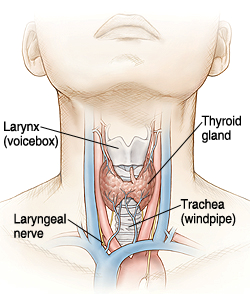 Image credit - Med Cor Image credit - Med Cor t can be difficult finding out if you have a thyroid problem. As someone who has had ongoing thyroid gland problems, for more than 40 years, I know this all too well. Initially suffering from an overactive thyroid gland many symptoms were classic yet my doctor failed to give the correct diagnosis. My weight was steadily decreasing, I seemed to be permanently racing around and, at its peak, I suffered severe diarrhoea and tummy problems. However, the doctor failed to do the simple diagnostic blood test needed and I visited various hospital departments for strange and unpleasant investigations for weeks. Eventually, after weeks of resting up, the condition subsided but it reared its ugly head again a few years later when I was under stress. This time though a diagnosis was correctly made -- Hyperthyroidism. Since then I underwent various treatments before eventually having radioactive Iodine treatment some years ago. This means that now my thyroid is under-active and daily supplementary medication is needed for the rest of my life. Regular blood tests are now also a fact of life. Hyperthyroidism is more dangerous than hypo though which is why doctors prefer the health problem to go the other way. So, with this background, I have told two friends over the years to see a doctor when they shared how they were feeling. One discovered she had an under-active thyroid gland and the other that she had thyroid cancer. Having had such varying symptoms over the years it is often easy now to spot thyroid issues in others. Despite this the last time I experienced major thyroid problems I mistakenly thought it was the menopause, due to the type of symptoms and my age. Here are some signs and symptoms which could mean that you have a thyroid problem and need investigation. Remember most times that your condition is easily treatable, although sometimes it may require surgery. Remember also that you must consult a medical professional for a correct diagnosis. Overactive thyroid or hyperthyroidism A fast heartbeat and or palpitations. Loss of weight but in rare cases increased weight due to over-eating. Loss of menstrual cycle, infertility or menstruation problems. Diarrhoea. Protruding eyes, in advanced cases. Pruritus, intense itching of the skin. Inability to sit still. Hyperactivity. Shaking hands and tremors. Hair loss. Swelling at the front of the neck. Underactive thyroid or hypothyroidism Slow heartbeat. Increased weight. Dull waxy skin. Sluggish, slow movements. Lethargy and lack of energy. Heavy menstrual bleeding. Changes in menstruation. Nail problems. Brittle and dry hair. Constipation. Thyroid cancer Unfortunately, in some cases, thyroid cancer may be diagnosed so a doctor should be consulted in all cases. Usually, there will be swelling at the front of the neck in cancers but even with that sign it still may not be cancer or malignant. Conclusion As with all these types of conditions symptoms can vary but if you have any vague feelings as described above it is best to have your thyroid function tested. A simple blood test will show if your thyroid is not working correctly. This small gland is responsible for regulating so much in your body it needs to function properly. Remember that worry and stress will aggravate your condition so try to stay calm. Also, depression can quite naturally accompany thyroid problems but may need treating as a separate issue. As a final thought, if you have close family members with thyroid disorders, especially your Mum, it may mean that you will follow suit. So check your family’s medical history. Please note: This is based on personal experience. You should always consult your medical professional. The writer's treatment was a few years ago and treatments are changing all the time. Check Web MD for the latest diagnosis methods and treatments available
"Veteran British actress Alison Steadman is once again at the forefront of this years Marie Curie Daffodil appeal in the UK. On sale are fake daffodils, like the fake poppies on sale prior to Remembrance Day in the UK. The money raised goes to help Marie Curie nurses and hospices, and Steadman knows first hand how vital these nurses are. In 2014 the charity website had more than one real-life story to share and here is Ms Steadman's: "My mum was my rock. When I had stage fright, she gave me the courage to carry on. And when she was diagnosed with cancer, it was the first time I’d ever seen her scared. She was frightened about the future. Marie Curie Nurses helped her to overcome her fear. She came back from her first visit to the Marie Curie Hospice, Liverpool feeling brighter and more optimistic. The hospice staff made such a difference and the care mum received was second to none. On one visit, a young male nurse came over, knelt down next to mum and said: ‘Now Marj, you must be hungry. Can we tempt you with a boiled egg and toast or how about a lovely bowl of custard?’ I’ve never forgotten that. It really touched me because it was the kind of thing I would have done for my mum. Mum looked forward to going to the hospice and it became a home from home for her, my sisters and me. It was so important to us that our mother, who supported and encouraged us when we needed it, received the best possible care." If that story is not enough to guarantee you buy a Marie Curie daffodil and wear it with pride there are many others. Give generously in order to support Marie Curie Cancer Care. Tweet #daffodilappeal to get the message out. Garden daffodils burst into bloom in the UK in March but so do Marie Curie daffodils. Will you be wearing one and with pride? Marie Curie  Depression involves a downward spiral into a sinking pit of despair. Any person who has suffered from depression will be able to relate to this opinion. Once you have sunk into a depression it will not be easy for you to resurface. It is possible though. There are many things that can help a person make a full recovery from depression and perhaps one of the most important is a committed partner. If your partner does not give a hoot about you then perhaps he or she is part of the problem. Depression involves a downward spiral into a sinking pit of despair. Any person who has suffered from depression will be able to relate to this opinion. Once you have sunk into a depression it will not be easy for you to resurface. It is possible though. There are many things that can help a person make a full recovery from depression and perhaps one of the most important is a committed partner. If your partner does not give a hoot about you then perhaps he or she is part of the problem.Recovery and treatments will depend on how long you have been suffering depression, your general health, any underlying other health issues and your life. Family support can be a useful tool in the fight back to the real world. Partners often struggle to cope with a partner who has depression. It is all too easy to put yourself at the root of the problem. This is rarely the case. Some people have a propensity to become depressed whilst for others it could be related to a hormone imbalance or the stress of life. Many women suffer depression for the first time as either post-natal depression after the birth of a baby, or during the menopause, when feel good hormones may be at a low level. So how can you help and support your partner through this period of debilitating depression? You should not have to tread on egg shells but you may find that more thought over your words and actions can help. Avoid ill thought out comments and instead try a sensitive approach. Remember your partner may normally be able to cope with anything you verbally throw at him or her but that has changed, at least for now. Sex can be last thing on a depressed person's mind. Anti-depressant medication can also reduce a person's libido. Try not to put pressure on your partner to perform sexually. If you have a loving relationship sex will return in time. Encouragement is good but also can be tough. Take for example your partner's appearance. Caring less about their appearance, well-being or personal hygiene can be symptom of depression. Your partner may struggle to get out of bed each day let alone spruce up for the outside world. Patience is the key. However look at adding a few changes a little at a time. Small "baby" steps may bring around a gradual change for the better. If you try and bully the person you will get nowhere and may do more harm than good. Having said all of that you must be true to yourself. Putting on a false front for your partner is never a good idea. You will have some days when you wish you were anywhere but with your depressed partner. Try to take each day as it comes and remember you are not a health professional but simply a partner doing their best to help and support. Ensure that your partner attends doctor's appointment, sticks to medication plans and visits counselling sessions if necessary. However, you are both adults and you cannot make your partner do any of this. You may though be able to persuade instead. Make sure that you look after yourself. It can be very difficult and time consuming supporting a partner who is depressed. What use are you if you too become physically or mentally ill? Take some "me" time-out in order to keep in touch with friends and family, or what you will. Help your partner make any necessary life changes to ease their depression. The depression could be work related, a problem at home or simply a clinical depression. If your partner can gradually open up and talk with you they may find that their fears have no foundation but are just part of their depressed state of mind. A depressed person usually puts themselves into virtual isolation. They may turn scenarios over and over in their mind or find it hard to speak hardly at all to anyone. Try to get your partner to open up a little. Silly as it seems something such as a telephone conversation can be a worry to a depressed person. They may let the phone ring and avoid talking to any callers at all. Passing them the phone just to say "Hi" could be a start. Encouraging an increase in physical activity would also be helpful, especially if it is outdoors. For example, walking the dog together you will both benefit from fresh air, exercise and encountering other human beings. It can be a long road to recovery though and you will have to take it a step at a time. Your partner may need to stay on medication for life, may never become depressed again or may find that periods of depression will be a fact of life for them. If this is the case you will need to make sure that you can cope with this. However, should depression recur it could be that you will identify the warning signs much sooner. This could mean that the period of depression is shorter and less intense. We are all individuals. This is also true of your partner's depression. Take what advice you are given but remember you are not a miracle worker. If the situation is not improving contact your health professional again. Ask for advice and recommendations. In time things will improve, just try not to "beat you or your partner up" so to speak. Depression may be a fact of life for many people but it does not have to ruin life for either of you. http://www.nhs.uk/conditions/depression/Pages/Introduction.aspx  It is often little things that make the older generation, which includes this writer, shake their heads at nonsense news. This idiotic news involves your smartphone or tablet and how it may disturb your sleep and sleep pattern. Reports that the blue light on smartphones and tablets can disturb your sleep are not new but recently a top doctor said the devices need a 'sleep' or 'bedtime' mode. Well Mr Brainiac doctor we have news for you; you do not have to leave your device good to go and within easy reach or sight when it is time to sleep. Try covering it, putting it in a case or leaving it on the landing of your home or anywhere but the bedroom. These days some people do not have landlines and a cell phone or computer is their only means of communicating to others when home. In an emergency it is good to know your phone is to hand. If you have an elderly relative you may want to know they can get in touch fast if necessary but we are talking about children's sleep here. Either way that does not mean you have to have that silly device with you at all times as if it was holding your life-blood. People survived and functioned well pre such devices. Virtual zombies wander around the U.K. and presumably other countries, smartphone in hand at all times. They get onto public transport engrossed in the device ignoring the driver and others and generally showing a rude face to the world. Half an hour later or so they disembark without having lifted their eyes from their device once. Silly conversations can be heard on buses as smartphone users call home to share inconsequential rubbish such as 'we are just turning into Patchet Street (fictitious for this report). Professor Paul Gringas (children’s sleep medicine and neurodisability specialist) of Evelina Children's Hospital in London took part in research for Frontiers in Public Health and has now said "blue lights emitted from these devices produce short-wavelengths that increase alertness and disrupt the process of falling asleep." The 'bedtime mode' is being touted for children's use but surely parents can remove the offending devices from bedrooms? The devices only disturb sleep if you let them; we do not need a 24/7 life; we are designed to rest for part of each 24 hour period and in children sleep time is crucial. [If lights on clocks and TVs disturb your sleep switch them off; get an old fashioned alarm clock instead. You will also save money on electricity bills!] You can read more at; Telegraph The following is based on personal experience - always check with your health professional for the latest treatments, advice and a diagnosis.
According to a BBC report Monday women with endometriosis are not getting an early diagnosis. Tell me something I do not know says One Woman. My endometriosis experiences were over a few years and ultimately date back to the 1990s and over almost 20 years. I probably had the condition much longer though. Diagnosis has always been slow but in 2017 the only excuse must be the cost and NHS cuts. So much is known of this condition than when I was told I had endometriosis. Endometriosis Endometriosis is quite a common female medical condition. It does not always cause fertility issues but often does, unfortunately. In the past, endometriosis was hard to diagnose. Many women who had difficulty conceiving just had to abandon all hope of ever having a family by natural birth. These days medical science has moved on so much that endometriosis can be easily identified, treat with some success and therefore allow natural child birth. So let's start with the obvious question-What is Endometriosis? When I was first diagnosed with this condition some years ago I had never heard of it. These days it is more commonly recognised and therefore public knowledge.
As with so many conditions getting the right diagnosis is the first step The signs and symptoms that you present with, when you first consult your Doctor, are a good starting point. So many of us know exactly what we want to tell our doctor but yet, when faced with him or her, fail to get our points across. Try jotting down what you want to ask and the symptoms you want to explain to your doctor, before your visit. This can also help you to feel in control of your appointment. Most family doctors will refer you to a gynaecologist if the symptoms you explain indicate a condition such as Endometriosis. This is not always the case though. Initially my doctor thought my menstrual problems were due to my thyroid condition. When I was finally diagnosed with endometriosis I read in the literature, that I was given, that the timescale for correct diagnosis was usually about seven years. In my case this was true. However, if fertility is your major concern time will be of the essence. In order to make a 100% accurate diagnosis a laparoscopy will be necessary This is a keyhole surgical procedure in which the gynaecologist will look at your uterus and the surrounding area to check for signs of Endometriosis. The naked eye can see the tell tale patches of endometrium. There may also be adhesions present. This procedure usually is carried out as day surgery. Too many doctors still think that a female patient is a baby if they claim to suffer from bad period pains. Even other women can make you feel like this. If they do not suffer from endometriosis it will be hard for them to believe you are in as much agony as you say that you are. Trust me, I believe you. If your symptoms continue, worsen or you are not happy with your doctor's initial diagnosis ask to be referred to a gynaecologist. Often such a specialist doctor will be able to confirm a diagnosis of endometriosis, quite quickly. Treatments available Your doctor should involve you all the way in deciding which course of treatment is appropriate for you. If you are still hoping to have a baby, obviously a hysterectomy would be inappropriate. These days a total hysterectomy is usually a last resort anyway. Some of the ways that Endometriosis can be treat are:-
Diet I tried diet changes when my Endometriosis was severe. I was not sure whether these changes would really help but thought it was the easiest course of action. I also figured losing some weight and improving my fitness would help prepare me for my surgery and the battle ahead. I cut out most dairy products, ate soy based desserts, margarine and milk, and consumed huge amounts of fresh fruit and vegetables. As I also have thyroid problems I had to be careful just what diet changes I made. However on the whole I did feel better in some ways. Heavy blood loss each month can lead to anaemia so plenty of iron rich greens may be beneficial. Research indicates that cutting back on processed and junk foods also helps. Additives and hydrogenated fats will not be good for you. Research the Internet in order to find the best diet for you. You not only need the best diet to fight your endometriosis but one that you will be able to stomach. You may need to give your diet a fair few tweaks in order to get the right balance. A vitamin supplement such as a vitamin B complex could also be beneficial. Hormone treatments The hormone treatments available do vary. I was given hormones in tablet form which made me moody, depressed, very cranky and bleed a little non-stop. Next I was tried on a monthly injection of Zoladex. This is injected into your belly and is the same injection used to treat prostate cancer in men. When administered to females it gives a temporary menopause with hot flashes and the like but thankfully no menstruation. The idea is that the patches of endometriosis will shrink. By the time I was receiving treatments I was well into my thirties and was not looking or hoping to become pregnant. You may be however. Hysterectomy These days hysterectomies are not performed on healthy women unless there are no other options. A partial hysterectomy will be the usual choice if one is needed. This usually leaves at least one ovary and prevents the onset of an early menopause. Microwave ablation Having read about such treatments I asked about this when I was first diagnosed with endometriosis. My consultant told me that the success rate was not good and the procedure was not, at that time, available for me where I lived. A few years down the road a microwave ablation is what I had, having been recommended this course of action by the same consultant. How times change. He did offer me the Mirena coil as a first choice but I declined. For me the microwave ablation did the trick. You need to bear in mind though that by then I was in my early fifties and the menopause should have been imminent. The procedure worked on the lining of my womb and the monthly bleeding ceased. This procedure is not suitable though if you want to become pregnant. Endometriosis and pregnancy If you have mild endometriosis pregnancy should be possible. In fact your chances should be the same as a woman without endometriosis. If your endometriosis is severe or long standing there is fair chance that some damage will have occurred. It could be scarring, adhesions or blocked fallopian tubes. Whatever the damage is that has occurred it will probably mean that some treatment will be needed in order for you to become pregnant. Harping back to the start of report I would just like to reiterate that getting the right diagnosis is the first and most important step. A laparoscopy will also allow the gynaecologist to assess any damage and decide what treatments may be necessary. Sometimes though the inability to become pregnant lies with painful sexual intercourse. Severe endometriosis can lead to sex being very painful and so avoided. Finally Endometriosis is a vast subject. If you are having trouble conceiving it could be something to consider. However, apart from fertility issues there would be some or all of the signs and symptoms listed above. Endometriosis is not life threatening nor is it due to anything that you have or have not done. It is just one of those things. Although more is known about endometriosis these days, than in the past, it is still not clear why some women develop this condition. Endometriosis can be a painful condition that plays havoc with your work, home and recreational life. The sooner it is diagnosed and treated the better. Footnote: Endometriosis can reoccur. Some treatments only offer a limited amount of time for a woman to conceive. One Woman is written by an endometriosis sufferer and not a health-care professional. As such professional advice is recommended. In early 2014 we were all told that eating at least 'seven-a-day', rather than five portions, of fruits and vegetables is the secret to good health. However many people struggle to fit in five portions let alone seven!
Fast forward to February 23, 2017, and that advice has been amended to 10-portions-a-day! Assuming the advice is good can you afford to follow it as the price of some fruit and vegetables rockets and there is a shortage in some cases? A portion however may be nothing more than a handful of blueberries or half a dozen strawberries. Can you afford to ignore good advice? While the advice may be well intentioned and sound it will not be easy to follow. The price of fruit and veg in the U.K. is sky high. Some produce bought from supermarkets is past its best at point of sale and quickly inedible. If money is tight, and even if it is not, throwing food away untouched will be galling. Again it proves the government and researchers are out of touch with the lives of many British people. Here is some advice as to what you can do to improve your fruit and veg intake: Grow your own -- No matter whether you have a garden or not it is possible to grow some produce. It may not always be cheap but it does not have to be expensive. Start seeds off in old card egg boxes, or empty, clean yogurt pots, so individual seedlings are easy to pot on. You can grow tomatoes in hanging baskets and tubs so be inventive. An old bucket can act as a big plant pot. Radishes grow very quickly and careful planting can mean you have a ready crop throughout summer. Select crops that you know your family will want to consume. Compost -- If any fruit or veg does begin to turn before you can consume it, use it rather than just binning it. Small composters are a great way to dispose of dead flowers, fruit, veg, peelings, egg shells, paper and old tea-bags but not cooked or raw food. Plant potatoes gone to seed -- If potatoes begin to sprout before you can eat them plant them for an almost cost free crop of spuds. They will not count toward your seven-a-day but will save you money and enable you to buy fresh fruit and veg. Frozen -- Frozen fruit and vegetables apparently do not count towards your daily quota. These days quick time freezing does however ensure some goodness is retained. In winter buy products such as tubs of frozen summer fruits which can be quickly stewed ready to add to breakfast cereal or use in other ways. Windfall -- Windfall apples can be used once stewed. But what about free foods such as brambles, or blackberries? You can still find plenty growing wild and ready for you to pick in late summer come early august. Perfect for making jam, freezing or just eating straight away. Cooking -- As consumers become lazy and use pre-cooked ready meals the art of simple cooking is forgotten. However it is cheaper in many cases to cook your own, with selective cooking and shopping. Research -- Research best prices and shop around. Research recipes at your local library or online. Choose ones that will offer good value for money but also retain the nutrients of fruit and veg used. Diversify -- Variety is the spice of life. If your usual choice of veg has gone up in price or is not available try an alternative. You may be surprised how tasty some fruit and veg really is. Get an allotment Finally -- Never get too bogged down with the latest health advice. We are all individuals and our genes play a part in our health. What may be great today could be dismissed tomorrow. It is however worth following a sensible diet and we all know fruit and vegetables have a wealth of benefits. Good health though is often also about lifestyle and exercise so make other changes including quitting smoking. Whether G.M.O. fruit and veg offer the same positive health benefits is unclear. Always ensure you thoroughly wash fresh fruit and veg, especially if not home grown, to remove any potential insecticide residue. BBC News 2014 "A study of 65,226 men and women indicated the more fruit and vegetables people ate, the less likely they were to die - at any given age. Seven a day cut the risk of dying from cancer and heart disease. But the government says its "five-a-day" advice is sufficient and that many of us struggle to achieve even this. Fruit and veg: For a longer life eat 10-a-day 10 ways to hit your 10-a-day, with minimum effort Working in a hospital pre-retirement, albeit in an administration role, certainly made me pay attention to good hygiene practices.
Did you know though that, however clean you may think your bathroom is, it could be a veritable minefield of germs and bacteria? There are a few obvious, and some not so obvious, ways that your bathroom may be germ-filled. Of course first and foremost good regular cleaning is essential. I hold my hands up to having peaks and troughs as far as home cleaning goes these days tough. After all there are so many other demands on our time. Hopefully this will act as a gentle reminder to us all about the potential hazards in our bathrooms and toilets, and just how we can minimise them. Shut that lid Let's start with one of the most important things to do in your bathroom. ALWAYS close the toilet lid before you flush. Did you know that, as you flush, your toilet can spray a fine mist of faecal matter for quite a distance. If you have your toothbrushes placed within six feet of the toilet bowl there is a fair chance that they will be covered. So, instead of cleaning your teeth you could actually be brushing them with a mixture of toothpaste and poo. Yuk. The importance of regular wipe downs Toilet handles, light switches. taps or faucets, toilet seats or what you will are regularly touched with unwashed hands. Of course, a few germs keep our bodies on their toes and are necessary. It is probably fair to say though that, most bathrooms would not pass rigorous hygiene testing. Faucets, taps, handles, switches and the like will more often than not have germs and bacteria present. Some may even have E Coli which can be a serious health risk. Keep some anti-bacterial wipes in the bathroom, so that you can have a quick wipe down regularly, apart from your proper cleaning. Remember that often a bar of used soap carries the most germs! Location, location Give some thought about where you are going to place toothbrushes, sponges, hand-wash, towels and the like. Apart from the spray from the toilet bowl there may be some spray from the shower. This does depend on if you have a shower cubicle or perhaps just a shower curtain. If, like me, you have a pocket sized bathroom it may not be easy but a small set of bathroom drawers could be used to house items rather than leave them on display. Shower heads need to be cleaned Guilty. I do not clean my shower-head enough but here is why you should. If you live in a hard water area the odds are the shower head will be full of limescale. This reduces its performance. It also can mean that you are spraying yourself with gunge, mold or even, yes you've guessed it, faecal matter. Shower curtains, cubicles, tiles, screens and the like need cleaning alsoIt is just as important to clean items such as shower screens. These will often house the remnants of the previous person's shower which does not make for a good companion to your ablutions. Clean regularly to extend their longevity but also to remove germs, scum and limescale. Towels, sponges and flannelsAs you jump out of your shower, all fresh and sweet smelling, you grab that soft fluffy clean towel or do you? Unless towels, flannels and sponges are regularly washed, and kept personal, you may be rubbing germs onto yourself. There may even be that faecal matter again.What a thought. Exercise caution with your cleaning productsThese days there are many aids to cleaning and good hygiene. Some are merely cosmetic whilst others claim to kill the worst bacteria and germs. Always read the label of such products before you buy. Personally I find that some are too lethal to have around the home. A child or animal could easily suffer if you are not careful. Store such items out of reach and harm's way. You may even have an allergy or risk skin damage by using a particular product, so be sensible. The most care needs to be taken when mixing such products. Guilty again. Many people now have a toilet block or gel in their toilet bowl which activates with each flush. Bleach or toilet cleaner is still usually added to the bowl on a regular basis. In fact many different products may be added. If you are not careful this practice could cause a noxious gas or your toilet bowl to catch fire and, or, explode. I am no chemist and yet regularly I mix a lethal cocktail of chemicals in my loo. Yes I want a clean and hygienic toilet but not if I am going to gas myself! Finally Do what you can to keep your bathroom and toilet clean, protect yourself and your health but keep a sense of proportion. I guess it is fair to say that despite your best efforts some bacteria and germs will survive. That's life I'm afraid. Just make sure that they do not have a pleasant breeding ground to multiply. Early detection of Alzheimer's, but is it worth knowing that you will develop this disease? Alzheimer's disease is a terrible condition. In so many ways the person affected dies in almost every sense of the word but their earthly body will still be alive and may even be in fairly good health. It must be awful to be married for say forty years and then your partner develop Alzheimer's. In either a short or long period of time the affected person will lose short term memory and may become like a stranger to their partner and family. Some patients become aggressive and, ultimately, most will need long term care. How sad and what a dreadful prospect for many of us Recently, there have been press reports about recent discoveries regarding the early diagnosis of Alzheimer's. Our first reaction was why would you want to know, perhaps twenty years before it happened, that you were going to get Alzheimer's as you age. If you give the matter more thought though it is not as simple as that. Life never is, is it?.................... A simple eye test used to detect early signs of Alzheimer's Within the next few years it seems that a simple eye test, to detect Alzheimer's, will be available through Opticians. It is as simple as identifying dying cells. This is done by examining the eye, after a harmless fluorescent dye has been introduced. Examining these cells, on the Retina of the eye, will be non-invasive and routine. In the past Doctors have found it difficult to follow any Alzheimer's changes to a patients brain. As the disease develops the brain shrinks and cells die. Observing the changes in each cell, on the Retina, may provide the information necessary to make a correct and early diagnosis of Alzheimer's. Blood pressure medication reducing the risk of Alzheimer's Recent research seems to indicate that patients who take angiotensin receptor blockers, ARBs, in order to control their blood pressure, may have a lower risk of developing Alzheimer's. It appears that this medication may prevent blood vessel damage in the brain, which could contribute to Alzheimer's. Trials are ongoing Readers will need to exercise caution when they read this report. Research is ongoing and nothing is conclusive yet. However, early indications look positive. So would you want to know if you were likely to develop Alzheimer's? What would you do if you were given such a prognosis? Initially most people may feel that they would not want to know, but think about it:
It is not time yet but, in the near future, you may be given the opportunity to be screened for the early signs of Alzheimer's. How will you feel? Will you want to know? What will you do with the information you have been given? Of course if Governments simply screen, without revealing the results to the individuals concerned, it will be pointless. They could do this in order to assess the levels of care that will be needed in the future and for research purposes. It is to be hoped that this new test is not used for such purposes, though. The quick and easy test, if it works, could offer so many people a last chance at life. Well life as they know and love it. Well? Would you want to know that you will probably develop Alzheimer's? Note: Originally reported in 2012 this link dates to Summer 2016 "The retina is made from similar kinds of tissue as the brain and that tissue can be seen directly by looking into the eye. ... According to the Alzheimer's Association, the disease is caused by the buildup of amyloid plaques and tangles in the nerve cells in the brain. Aug 8, 2016" How to tell if a person has suffered a stroke
Introduction A stroke can leave the sufferer with more than one disability for the rest of their life, or even kill them fairly instantly. When I was 19 my Mum, who was aged just 55, suffered a severe stroke. Through her Doctor's incompetence she did not receive treatment until her health was so damaged that she was left semi-paralysed, unable to utter but a few words. After three years, which saw my poor Mum suffer more than anyone really should, she passed away, fighting until the end. With age and experience I have learned not to just accept a Doctor's blase diagnosis down a telephone line. If you think that someone may have suffered a stroke get help and get it fast. Ring an ambulance by calling 911 in the USA, and 999 in the UK REMEMBER - The quicker you act, the more of the person you will save, and I know all too well how true that is. For me, the advice is very personal. It could have made my Mum's prognosis so very different. I hope I never suffer a stroke but, as my Mum's sister and their Mother, suffered the same fate, who knows. Looking after yourself can improve your chances but of course genetics play a part. When a person suffers a stroke time is of the essence. Quickly detecting a stroke and getting the appropriate treatment is vital. The speed of receiving treatment will have a marked effect on the outcome. So to repeat and stress:- The quicker the stroke is diagnosed, the more of the person that can be saved In recent years the UK has seen a huge television advertising campaign, aimed at helping people recognise the signs and symptoms of a stroke. These adverts have tried to make sure that each and everyone one of us remembers the slogan, associates it with the signs and symptoms of a stroke, and quickly gets help when necessary. The slogan is F.A.S.T and so these letters will be the 1-2-3-4 of this simple guide. F - Step 1
Additional symptoms could also be:-
These symptoms could also be a sign that the person has had a mini-stroke or TIA. Some of the Stroke risk factors.
Finally As usual this simple how to guide ended up rather longer than anticipated. However the one message we hope to get across is F.A.S.T. Please remember to check for the symptoms if necessary, as young and old can unfortunately suffer a stroke. You could save some-one's life or perhaps someone may save YOURS. |
Archives
March 2020
Categories
All
|

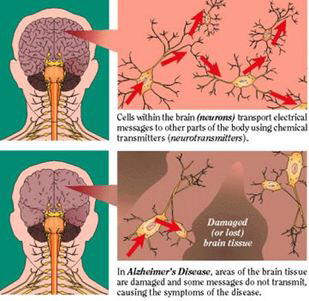


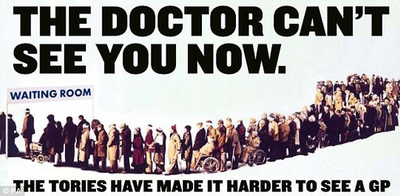
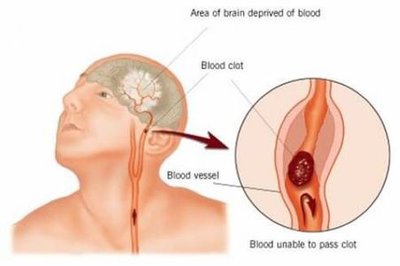
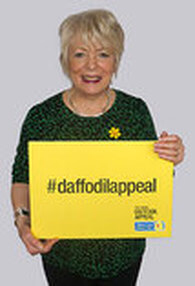
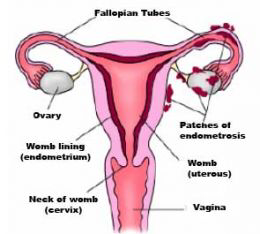
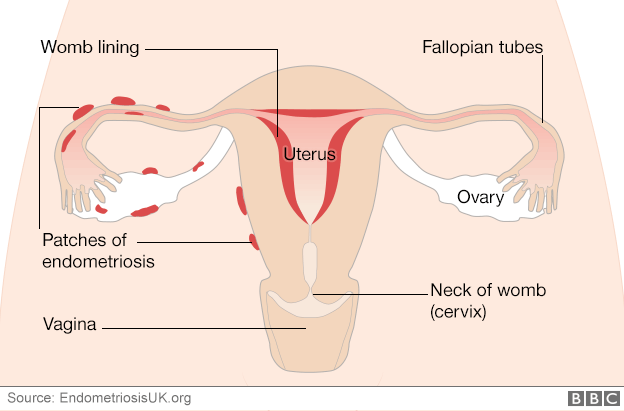
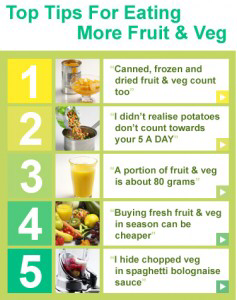



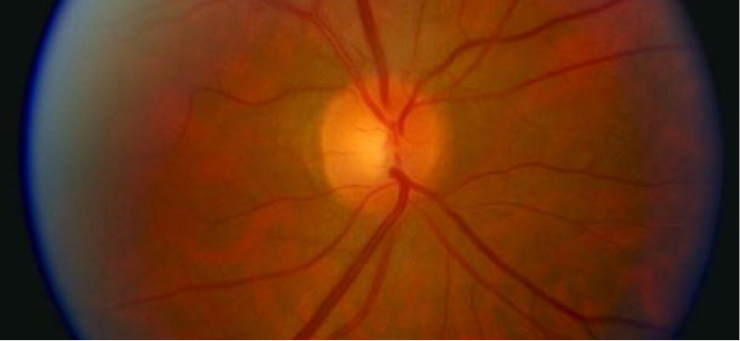
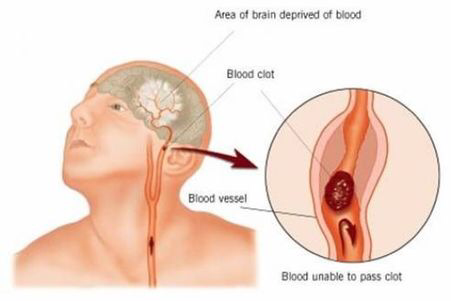
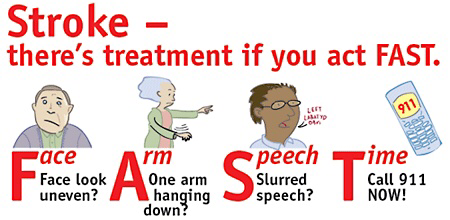
 RSS Feed
RSS Feed




